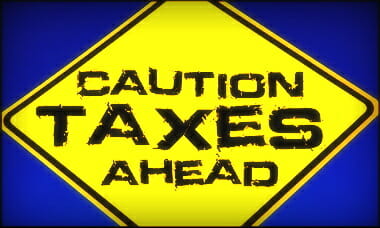
I frequent some liberal blogs, and this recent Think Progress graphic/story is popping up, like at Little Green Footballs. So I figured I would wade into this muddy water by posting a response I found over at National Review Online and The College Conservative (CC). Here is the CC’s input:
…The chart appears to be telling us that spending, taxes, and deficits are all lower today than when Obama took office. I applaud the chart’s makers – the goons over at Think Progress with the help of the Center for American Progress – for their crafty figuring.
The chart uses the percentage of GDP from the day Obama took office and the current estimates to fudge the truth and make it look like Obama isn’t everything we evil conservatives say he is, namely fiscally irresponsible. Even an amateur economist – like public school amateur – should see right through this.
Of what use is comparing spending using a percentage of GDP, unless you’re goal is to provide bad analysis? Spending as a percentage of GDP increased from 20.8 to 25.2 between 2008 and 2009 (from government stimulus). Assuming the calculations in the chart are true (in reality, they’re only based on estimations), all it shows is that spending went from one slice of a big pie to a smaller slice of an even bigger pie.
It’s the same dishonest game for their claim on taxes. The percentage of GDP does not at all associate with the increasing tax rates that Obama and the Democrats gave us with ObamaCare. Also, coming from left-wingers, why is low federal revenue a good thing?
Lastly – I assume this is their big hurrah – deficit spending has decreased from 8.3 to 7.6% of GDP. Even if this were true, so what? This is like patting yourself on the back for sticking to your diet by only eating the whole kitchen. Political Math fixed the numbers on the chart using actual data instead of flimsy estimates and found that spending and deficits are higher under Obama (every sane person says “Duh!”). Obama did, however, seem to lower federal revenue without raising taxes. Again, with a barrage of new spending, how is this a good thing?…
…read more…

(Chart above) It is easy to dispense with the argument that the president has been tight with money. Assume that during the year 2009 your already-overweight friend gained forty extra pounds, and since then your friend has continued to overeat such that his body weight has remained roughly constant. Since he hasn’t gained much weight in the past four years, can I conclude that he doesn’t have a weight problem? Of course not. Same goes with the president and his spending; a low rate of spending growth does not imply the absence of an extremely high amount of spending. (FORBES).
An email response to a Rich Lowry question responds to the chart as well. Investors Business Daily’s take is worth posting however:
…But since taking office, Obama’s policies have made everything far worse.
And that’s abundantly clear if you compare the rest of the CBO’s 2009 forecast to Obama’s actual results.
In each and every year, Obama spent far more than the CBO had projected, took in far less in revenues — not because he cut taxes, but because of the lousy recovery — and produced much larger deficits.
Whereas the CBO projected spending in 2012 would be 21% of gross domestic product, for example, Obama now pegs it at 24%. That, mind you, would have been far worse had Republicans not put the brakes on further “stimulus” spending.
Deficits as a share of GDP, meanwhile, have come in almost twice as high as the CBO projected just before Obama took office. And the government has piled on more than $5 trillion in additional debt.
Obama can’t blame the deeper-than-expected recession on these dismal results. The real problem has been the extremely poor recovery he engineered. Whereas the CBO’s January 2009 forecast put GDP growth in 2011 at 4.4%, it came in at a mere 1.7%. This year, GDP growth is running at half the rate the CBO predicted…
…read more…
One last point that is worth mentioning. Since we are dealing with projections, let’s throw this one out into the ether:
…This year, he [Obama] introduced a fiscal 2013 budget that would have reversed the debt deal’s caps on increased spending.
“Over the 2013-2022 period,” CBO concluded in its analysis of Obama’s proposal, “the cumulative deficit that would result from enacting the president’s budget — $6.4 trillion (or 3.2 percent of GDP) — would be $3.5 trillion larger than the cumulative deficit projected under current law.”
When Obama told the people in Waterloo, Iowa, this month that he would make sure government did its part to reduce the debt, it was not a $1 trillion lie. It was a $3.5 trillion lie…
…read more…


